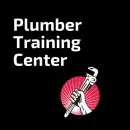Plumbers around the world work on pipes that supply water and gas, as well as carry away waste from different structures. Those in Portugal are no different, although you will need to fulfill certain requirements.
To become a plumber in Portugal, you’ll need to speak Portuguese, be an EU resident or have a legal work permit, graduate from high school, and gain the necessary skills to work on the Portuguese pipe system.
This article will cover each requirement in detail, as well as plumber salaries and the job outlook in Portugal.
Becoming a Plumber in Portugal
To become a plumber in Portugal, you’ll have to tackle the language, working permits, and formal training and education.
- Learn the Language
You’ll need to be fluent in Portuguese before joining the job market as a plumber, so be sure you’re familiar with the language and local colloquialisms.
- Acquire a Work Permit
If you are a legal citizen of another EU country from this list, you have the right to live and work in any other country in the EU. This includes moving with your spouse and any dependents that you have. You’ll need an ID card or passport to make this move, and after three months you’ll have to apply for a Residence Certificate.
If you’re from another country, like the U.S. or Canada, you’ll need to get to Portugal through a visa. Once you’ve obtained a visa, you can apply for a work permit.
Visas are offered for students, those with job contracts in Portugal, those getting married to a Portuguese citizen or with family there, or those who significantly invest in the country. Obtaining a visa is no easy task – your best bet is to consult with an immigration attorney before proceeding.
- Finish High School
Most plumbing positions in Portugal require you to have finished secondary school or a similar GED program. Some schools may also offer a trade school alternative to secondary school (similar to vocational school) where plumbing training is available.
- Get Trained
Portugal does not offer a country-wide plumbing license.
Some schools offer post-secondary education and training for plumbers. You may also choose to study engineering at a university, although this is not a requirement.
Most plumbers are trained through a program or on the job. You can find programs for residential and building plumbers, as well as for isometric industrial plumbers. These courses are given in Portuguese both online and in-person.
Portugal also offers an apprentice system (original link is in Spanish) for those between the ages of 15 and 25. At the end of your apprenticeship, you will receive both a Level 2 and Level 3 Professional Qualification.
If you choose to open your own business, you’ll need to register your business and complete federal and/or provincial paperwork to become self-employed.
Plumber Salary in Portugal
Plumbers in Portugal make roughly $936 per month, which is slightly below the average salary for all Portuguese workers. While this may sound much less compared to American salaries, the cost of living in Portugal can be extremely low, making it a feasible salary.
With more experience in the field, you can raise this salary to up to $1,300 over time.
Plumber Job Outlook in Portugal
Portugal suffered a very high unemployment rate from 2009 until around 2016. Since then, the rate has been steadily decreasing as more Portuguese citizens become employed. The current rate as of 2022 is roughly 6%.
Construction and plumbing jobs have seen an increase in employment, minus a slight dip during the 2021 pandemic that has self-corrected over time.

